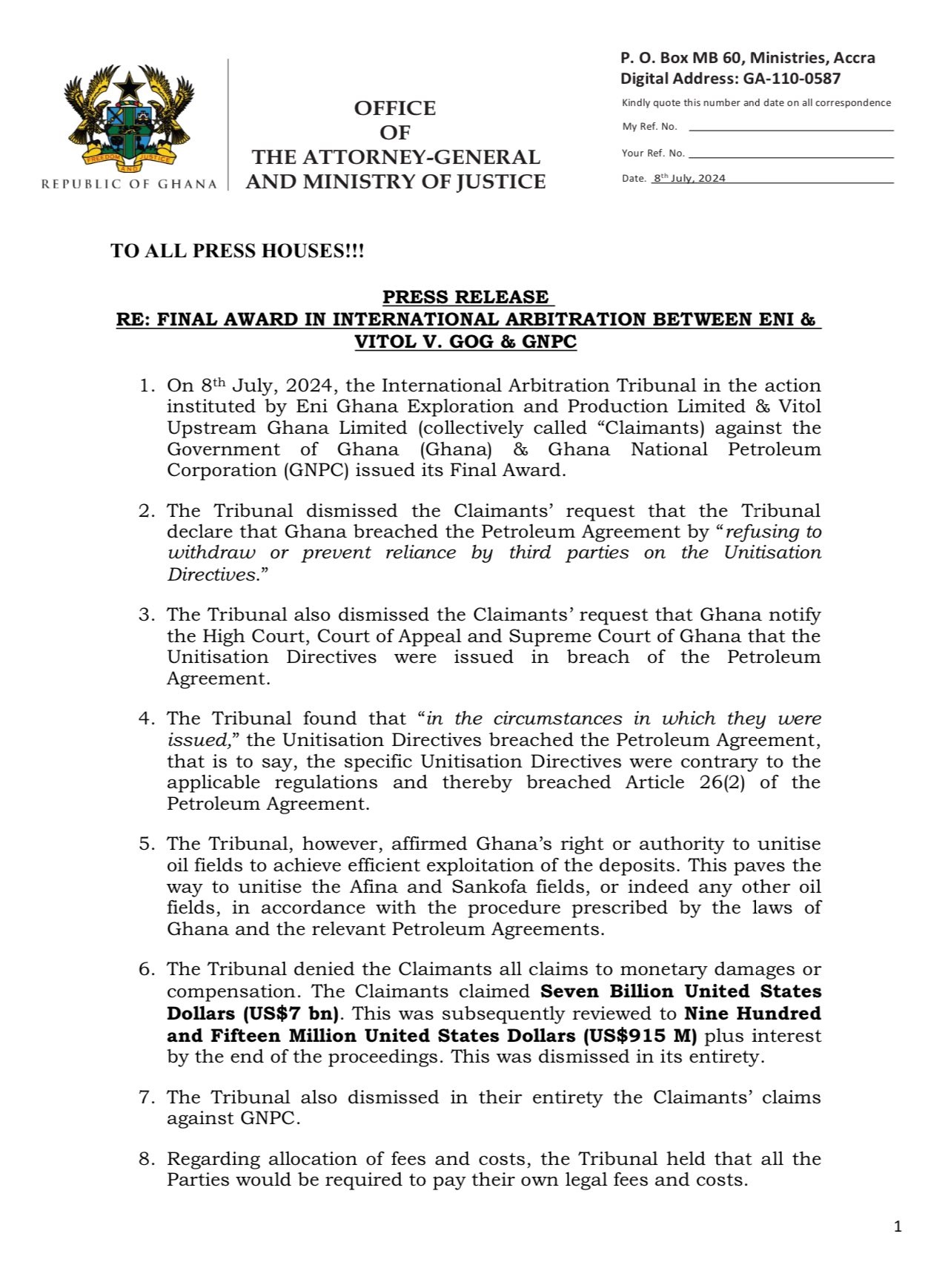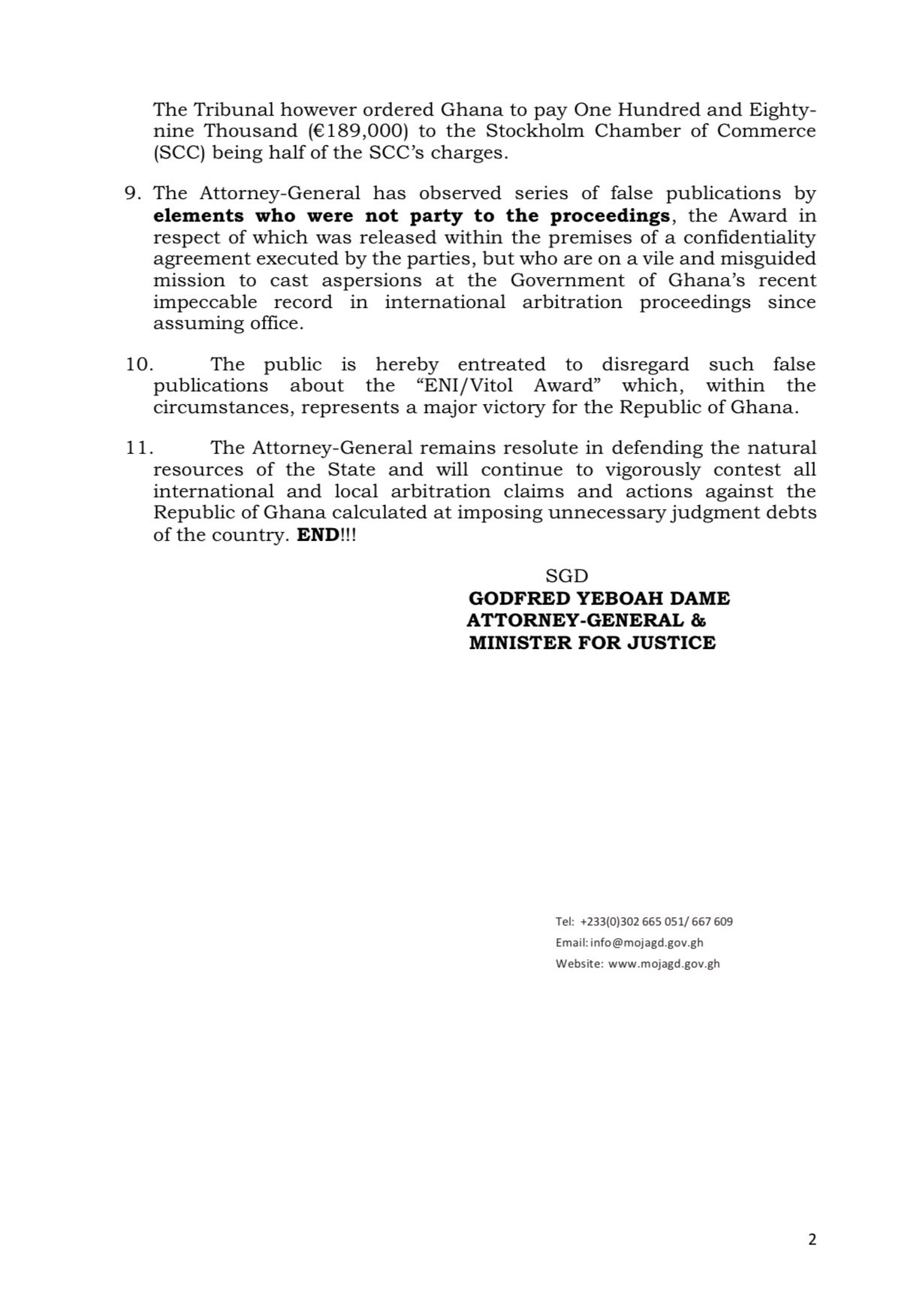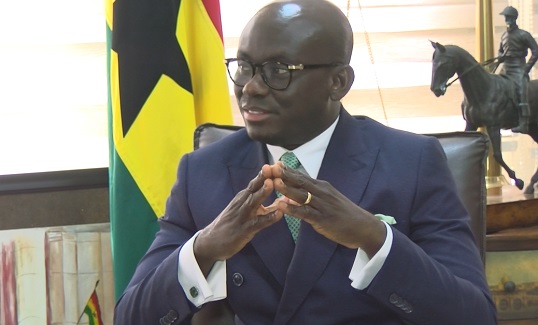The International Arbitration Tribunal in the Eni & Vitol v. Ghana & GNPC arbitration has issued its Final Award.
The award per the Attorney-General's Department is a mixed bag for Ghana. The Tribunal found that “the Unitisation Directives in the circumstances in which they were issued" were wrongful.
Specifically it found that the imposition of the unitisation terms were wrongful, and that the determination of the initial tract participation was arbitrary. Positively for the Republic, the Tribunal denied Claimants their monetary damages -- initially $7 billion dollars, and subsequently reviewed to $915 million plus interest, by the end of the proceedings.
In addition, the Tribunal dismissed the Claimants’ request that the Tribunal declare that Ghana breached the Petroleum Agreement by “refusing to withdraw or prevent reliance by third parties on the Unitisation Directives.” The Tribunal also dismissed the Claimant’s request that Ghana notify the High Court, Court of Appeal and Supreme Court of Ghana that the Unitisation Directives were issued in breach of the Petroleum Agreement.

The Tribunal, however, found that “in the circumstances in which they were issued,” the Unitisation Directives breached the Petroleum Agreement. That is, the unitisation was contrary to the applicable regulations and thereby breached Article 26(2) of the Petroleum Agreement. Nonetheless, the Tribunal affirmed Ghana’s right to the authority to unitise oil fields to achieve efficient exploitation of the deposits.
Claims against GNPC
The tribunal also dismissed Claimant's claims against GNPC in their entirety. In addition, the Tribunal dismissed Claimant's requests that the Tribunal declare Ghana breached the Petroleum Agreement by "refusing to withdraw or prevent reliance by third parties on the Unitisation Directives". Regarding allocation of fees and costs, the Tribunal held that since both Parties had prevailed in some ways, both Parties would be required to pay their own legal fees and costs.
The Tribunal held that Ghana should pay 50% of the amount paid by Claimants to the Swedish Chamber of Commerce, which amounts to EUR 189,000. GNPC was however not ordered to pay any amount at all. Claimants were denied any interest in respect of the costs of €189,000.
A-G reacts to award
In a reaction to the Award, the Attorney-General, Godfred Yeboah Dame, indicated that whilst he would have wished the Tribunal to uphold the claim of the Republic in its entirety, he is pleased to note that the Tribunal rejected partly the claims against Ghana, and entirely the claims against GNPC. He is also delighted by the complete dismissal of all claims for monetary compensation made by ENI/Vitol against Ghana. The Attorney-General added that in the circumstances, the Parties must determine the best way to proceed going forward.
Unitisation in principle, is not unlawful per the Tribunal’s decision. It is the manner and the circumstances in which same was carried out which the Tribunal frowned upon, while granting Ghana the benefit of not having to pay any monetary compensation. Ghana has the option to accept the Award or to initiate proceedings to set aside in the Swedish courts within 2 months, Mr. Dame added.

Defence against illegitimate claims
This award adds on to a number of awards and cases the Attorney-General’s Office under the learned Godfred Yeboah Dame has vigorously contested in all international arbitration fora. Recent cases in point are victories against Beijing Everyway, Cassius Mining, and Messrs Micheletti Company Limited etc.
Source: thelawplatform





